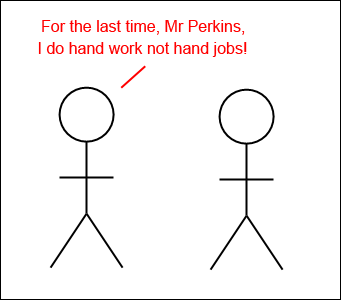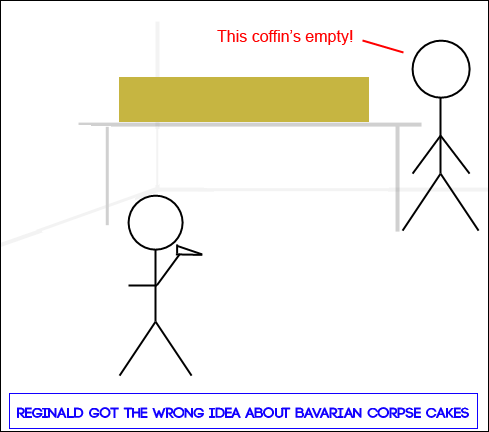Marshmallow
They grow in the ground
The mallow is a type of plant. A variety of mallow grows near salt marshes. Someone in the 19th century had the bright idea of digging up the plant and making a white, fluffy confection out of it. This candy was then called Marshmallow.
Galosh
Putting your foot in it
Galoshes come in pairs, of course. But if you have just one of them, it's a galosh. Galoshes used to be made of wood and fastened to the foot with a bit of leather. Not a modern invention is your galosh!
Eye is an old English word, dating back to Proto-Germanic. But eyeball is first recorded in 1590, in Shakespeare's Midsummer Night's Dream. Whether he coined the term himself is not known.
Pedigree
It's all about cranes
The word pedigree comes from the French pied de grue, which means crane's foot. (Crane the bird, obviously.) The bird's foot, and the mark it left, looked like the succession lines in genealogies.
Tulips
Tulips are turbans
We all know tulips are from Amsterdam, but the word 'tulip' comes from the Persian word for turban, dulband. (The turban looks like a tulip.) From Persia, dulband ended up in Turkish as tülbent. This ended up in French as first tulipan then tulipe. The Dutch got hold of tulipe, knocked the e off the end, added an 'a', and it became tulipa. In the 16th century, the English borrowed the word and decided the 'a' wasn't needed, hence our word, Tulip.
Nickel and Cobalt
Blame it on the Goblins
Nickel and Cobalt both derive from words meaning goblin. Nickel is from the swedish kopparnikel, derived from the German kupfernickel. Kupfer is copper and Nickel means demon or goblin. Cobalt is from the German kobold, goblin. It's thought that demons or goblins were responsible for robbing the copper or silver from ore and replacing it with these worthless, to them, substances.
The original meaning of Poppycock was quite rude. Nowadays, it jut means nonsense. But it's thought to have come into the American language in the mid 19th century, via the Dutch slang word, pappekak. Pappe is soft food, and Kak - well, it's poo! So, poppycock is soft food poo.
Orange used to have an 'n' at the start. So it should be norange. Blame the French for the loss of the 'n'. It was thought that the French used to be une narange (derived from the Sanskrit, then the Persian, then the Arabic). This then got corrupted into just orange, which how the English took it.
ASH-HOLE
Scotland and England
This is exactly what you think it is - a hole for ash! The hole would be beneath or in front of the fire. Put your ashes into your ash-hole and you're done. Somebody in West Yorkshire was recorded as saying the following
"I tell'd her a hundred times never to put the poker in the ash-hole."
The poker would heat up, you see. Then, when you went to grab the poker from the ash-hole, it would burn your hand. So, remember folks, no poker in the ash-hole!
The Meerschaum in Meerschaum pipe means 'sea foam'. It's German, of course, from a translation of a Persian phrase, kef-i-daryā, foam of the sea. Meerschaum is a clay-like mineral, light in colour.
You used to keep your clothes in a toilet! A toilet was originally a cover or bag for clothes. It comes from the French toilette, cover, bag for clothes and dates to about 1540. In the 17th century, toilet came to mean a dressing room. Our modern meaning of toilet only dates from 1895.
You've no doubt heard of sine and cosine. In English, it comes from the Latin sinus, which means a fold in a garment, bend, or curve. Except, this is a mistranslation. The Europeans got a lot of their math from the Arabic world. When they were translating the Arabic word for sine, which is jiba, they thought it said jaib. Jiba means arc, as in the arc of a bowstring. Jaib, however, means fold in a garment. A fold in a garment in Latin is sinus, hence sine. The word for an arc in Latin is arcus. So perhaps we should have arcus and coarcus. Not that it would have helped me in math class!
Drone
The humble worker bee
Drone is from the Old English dran. Then it acquired an 'e' on the end in about 1127, becoming drane. The 'a' was pronounced either as the 'a' in ran or the 'ai' in rain. So, we should have worker drains! Nobody knows where the 'o' comes from in the modern spelling, or when the pronunciation changed to rhyme with 'crone'.
Drum
It's not what you think
A drum is actually a trumpet!It comes from the High German word trumme, which was a trumpet. The word then ended up in Dutch as tromme. But the object changed from a trumpet to a drum. Nobody knows why. Also a mystery is when or why the English version ended up with a 'dr' at the start to get drum. But probably because the word sounded like 'drum' to English ears. We should be really banging our trums.
Doctor
Don't mention the monks
Doctor comes from the Latin 'deceo' meaning 'I teach'.
And that's what doctors were - teachers or trainers. Monks in the Medieval
age were called doctors. They did healing work. They never did any surgery
because the church banned them from cutting people. Instead, the cutting
was done by the barbers of the monks. (It was the barbers who had the sharp
instruments and gave the monks that circle of hair with a bald head at the
top, the tonsure.) The barbers became surgeons, but not doctors. If you
didn't teach you weren't a doctor. To this day, surgeons in the UK are not
doctors and get called Mr.
Surgeon derives from the Greek word kheirourgos. It means
'hand worker'. The Latin word was chirurgus. It then came into English via
the French version, chirurge.

Cancer
You haven't got crabs
Hippocrates and the Greeks called cancer karkinos, which
means crab. It was a Roman doctor by the name of Celsus that renamed it
to the Latin name for crab, cancer. It was called a crab because that's
what they thought a malignant tumour looked like with its top lopped off.
However, they gave the name cancer to all kinds of illness, like herpes
and gangrene. So our cancer is not their cancer.
Bavarian corpse cakes
More tea, vicar?
Do you like cakes? Place one on the body of the deceased
and it will soak up their goodness. Then eat cake. Used to be all the rage
in Bavaria.

Typewriters
Shift your R's
The very first typewriters only allowed you to type
in uppercase letters. If you wanted to type lowercase letters, you had to
wait until the invention of the shift key in 1878.
Climax
It's all Greek to me!
This word comes (snigger) from the Greek word for
ladder, 'klimax'. You couldn't get on top of a roof without a good klimax.
Cemetery
Sleeping peacefully
Cemetery comes from the Greek word koimêtêrion. It meant 'room for sleeping in'.
In the 14th century, a spoon was splinter of wood. So, in the Middle Ages, you could have a spoon in your finger.
Colours in History
Blue remembered hills
The Ancient Greeks never had a word for blue. Despite
those lovely blue skies and seas, the poet Homer never once mentioned them
as being blue. And some of the other colours he does mention are weird.
Sheep are purple, honey was green, horses and the sea were wine-coloured.
It's the same for other ancient writings, like the Vedas and the Bible -
no blues, and weird colours for things like horses (red) and faces turning
green with panic. The reason is, not that they couldn't see blue, but that
they didn't have a word for it. It's like us today in English. These are
both considered blue:

Even though they are clearly different, we English speakers insist they
are both variations of blue.
EGGS
A rare northern victory
William Caxton was to blame for eggs. When he set up his printing press in England, he had to make sense of all the various spellings for different words. One of these words was egg. In the north, we used the Old Norse word egg. In the South, they used the Anglo Saxon word ey. Caxton chose the Northern spelling. If he hadn't, we would now have a boiled ey (singular) for breakfast. Or scrambled eyren (plural).
The C-word
A very personal noun
You know what the c-word is. You know, the one that rhymes with 'hunt'.
The four letter word that gets blanked out in newspapers as c***.
Let's go back to before the Middle Ages. Nobody wanted to become a count.
They insisted on the title earl instead. The problem was that the word 'count' was pronounced just like the word c***.
So people called you the 'C*** of Monte Cristo'.
Spring
No Spring break for you!
There was no word for Spring before the 16th century. They rolled our Spring and Summer into one season - Summer.



